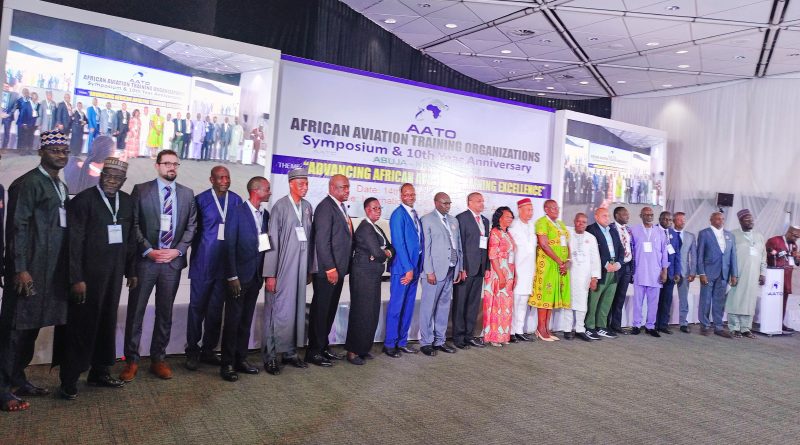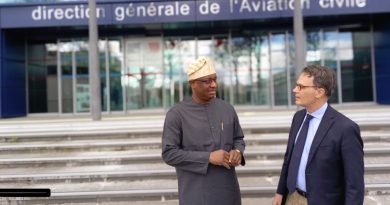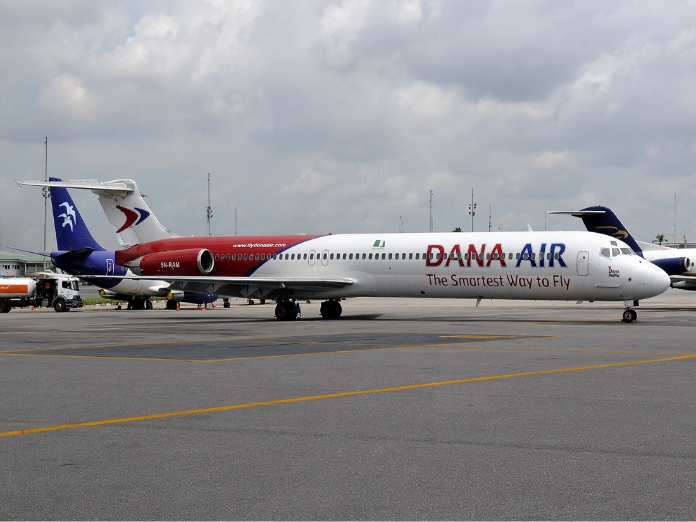AATO SYMPOSIUM: Stakeholders plan to collaborate on training infrastructure, harmonized curricular
Oru Leonard
Stakeholders from different parts of Africa gathered in Abuja yesterday for the African Aviation Training Organisation (AATO), symposium and meeting in agreement to collaborate among members on usage of training infrastructure and curriculum.
Speaking at the the 29th AATO council meeting symposium and the 10th-anniversary celebration held in Abuja themed “Advancing African Aviation Training Excellence”, the Minister of Aviation and Aerospace Development, Mr. Festus Keyamo, SAN said the Africa Aviation Training Organisation (AATO), has undertaken to provide quality training for the development of a sustainable, safe and secure air transport industry in Africa.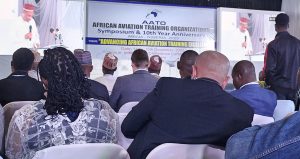 Represented by the Permanent Secretary of the ministry, Mr. Emmanuel Meribole, Keyamo stressed the need for comprehensive planning, coordination, management, operation and oversight of various aviation infrastructure complexities. He also noted that recognising the strategic importance of the aviation sector in supporting economic and social development.
Represented by the Permanent Secretary of the ministry, Mr. Emmanuel Meribole, Keyamo stressed the need for comprehensive planning, coordination, management, operation and oversight of various aviation infrastructure complexities. He also noted that recognising the strategic importance of the aviation sector in supporting economic and social development.
“The growth of the industry will be influenced by the pace at which African organisations can develop and retain adequate and skilled human resources in compliance with International Civil Aviation Organisation (ICAO) provisions, plans, programmes and required performance specified in ICAO SARPS”, Keyamo said.
He noted the challenges facing AATO as inadequate funding, low membership, lack of awareness, and a fragile institutional framework. He however, urged members to prioritise safety and success in flight, emphasising the industry’s reliance on teamwork.
“The growth of the industry will be influenced by the pace at which African organisations can develop and retain adequate and skilled human resources in compliance with International Civil Aviation Organisation (ICAO) provisions, plans, programmes and required performance specified in ICAO SARPS”.
“AATO plans to implement measures to train adequate personnel to work in the industry and guarantee a sustainable aviation industry in Africa,” Keyamo stated.

He mentioned some of the objectives and achievements of AATO, including promoting the interests of its members and aviation training in Africa, fostering cooperation among its members, and encouraging the sharing of expertise among its members and other aviation organisations. AATO has also entered into memoranda of understanding (MoUs) with African aviation services and other entities.
However, Keyamo acknowledged challenges such as inadequate funding, low membership, lack of awareness, and a fragile institutional framework. Expressing gratitude to stakeholders and participants, he urged them to prioritise safety and success in flight, emphasising the industry’s reliance on teamwork.
The President of AATO, Ms. Tendani Ndou provided additional insights into the organisation’s mission, emphasising its establishment to harmonise and standardise individual training in Africa. She highlighted the strategic importance of AATO in supporting economic and social development while ensuring the safety of citizens.
“AATO envisions bringing together aviation training organizations in all 54 states in Africa. Audits and assessments conducted by ICAO and other industry organisations have revealed a shortage of qualified personnel in crucial areas of civil aviation throughout Africa, which has the potential to negatively impact safety and security in the long term,” she said.
Ndou said AATO could achieve its global goals with financial support from stakeholders.
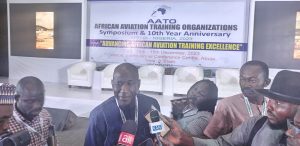 Addressing Journalists, the Technical Coordinator of AATO West Africa, Dr. Yakubu Ibrahim explained that AATO aims to harmonise training curricular and synergise on infrastructure across African countries, streamlining certification processes. He then called for stakeholder collaboration in overcoming aviation challenges and pooling resources for Africa’s progress.
Addressing Journalists, the Technical Coordinator of AATO West Africa, Dr. Yakubu Ibrahim explained that AATO aims to harmonise training curricular and synergise on infrastructure across African countries, streamlining certification processes. He then called for stakeholder collaboration in overcoming aviation challenges and pooling resources for Africa’s progress.
The Regional Director of ICAO Eastern and Southern Africa, Ms. Lucy Mbugu stressed the importance of strategic partnerships and collaboration with regional and international institutions, development partners, and industry leaders. She encouraged participants to embrace innovation and digital learning platforms to bridge the technology gap and offer state-of-the-art training programmes aligned with global standards.

The participants were to a variety of cultural display and Nigerian dishes

